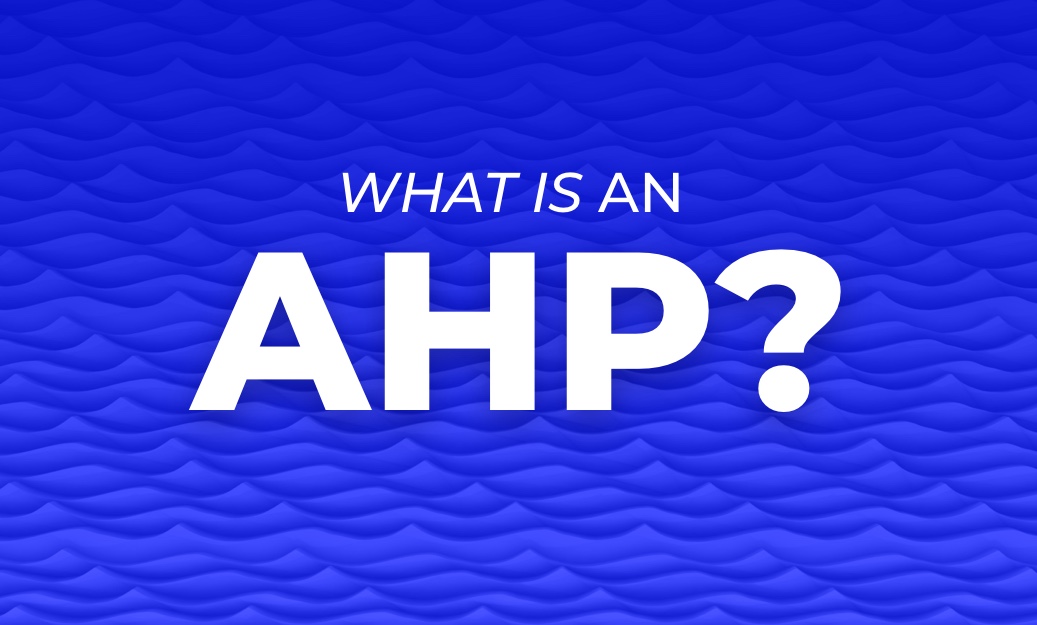What Is an AHP?
Updated on August 18, 2020

AHP is the recognized abbreviation for “Association Health Plans,” a subset of the Employee Retirement Income Security Act (ERISA) health insurance market, which covers 136 million Americans. ERISA health insurance is the largest segment of the total health insurance market in the United States, and includes both fully-insured and self-insured large employer health plans. AHPs work by allowing small businesses, including self-employed workers, to band together by geography or industry to obtain health coverage as if they were a single large employer. The availability of AHPs to small businesses was made possible under a new ERISA rule issued by the Department of Labor (DOL). AHPs have been proven to significantly lower the cost of health coverage to small businesses as a result of strengthened negotiating power with insurers and health providers due to larger risk pools, administrative efficiencies due to economies of scale, and improved employee health outcomes due to bundled wellness and digital health programs.
Pros and Cons of AHPs
Critics of AHPs, such as the health insurance companies that sell traditional small group coverage, contend that AHPs have an unfair competitive advantage over their higher cost small group and individual market exchange plans. They base their fairness argument on the fact that AHPs are not required to directly meet all of the Essential Health Benefits (EHB), as defined in the Affordable Care Act (ACA).
Proponents of AHPs, such as Chambers of Commerce and leading business and trade associations, point out that an AHP is just another large employer ERISA health insurance plan and must comply with all the same employer health plan laws and regulations. Further, proponents state that what is actually unfair is the fact that small businesses have been locked out of the more affordable and higher-quality ERISA health insurance market for decades, which has only served to profit the insurance companies at the expense of small businesses. More recently, proponents argue that lower cost AHPs are essential for small businesses, suffering with the financial impact of the Covid-19 crisis, to continue offering major medical health coverage to their employees.
AHPs are High Quality Health Plans with All of the Large Employer Consumer Protections
Both the critics and proponents of AHPs recognize that AHPs have all the same benefit requirements, consumer protections and safeguards that apply to the large employer ERISA health insurance market today. According to the DOL and U.S. Department of Health and Human Services (HHS), the most important AHP consumer protections are:
- All Pre-existing Conditions Covered – AHPs may not charge higher premiums or deny coverage to employees because of pre-existing conditions or because an employee becomes ill.
- No Health Discrimination — AHPs cannot cherry-pick plan participants or discriminate based on health factors.
- Cap on Out-of-Pocket Costs – AHPs must cap out-of-pocket costs at $8,150 for an individual and $16,300 for a family (2020 plan year).
- No Lifetime Dollar Limit Allowed – AHPs cannot have annual or lifetime dollar limits on coverage.
- Children Covered Until Age 26 – AHPs are required to allow children to remain on a parent’s plan until they turn 26 years of age.
- AHPs Spend More on Healthcare Than Traditional Small Businesses Plans – All fully-insured AHPs must have a medical loss ratio (MLR) of at least 85%. MLR is the percentage of premium revenue that a health insurance carrier must spend on medical claims and healthcare quality improvements (as opposed to administrative expenses, marketing expenses, or insurance company profits). By comparison, the MLR for ACA small group or individual market exchange plans is only 80%, which leaves 20% of all premiums collected to insurance company selling expenses and profits.
It is also important to note that the new ERISA rule authorizing AHPs does not diminish traditional state oversight over health insurance. State insurance regulators have all the same regulatory oversight over AHPs as they do in the broader large employer market.





